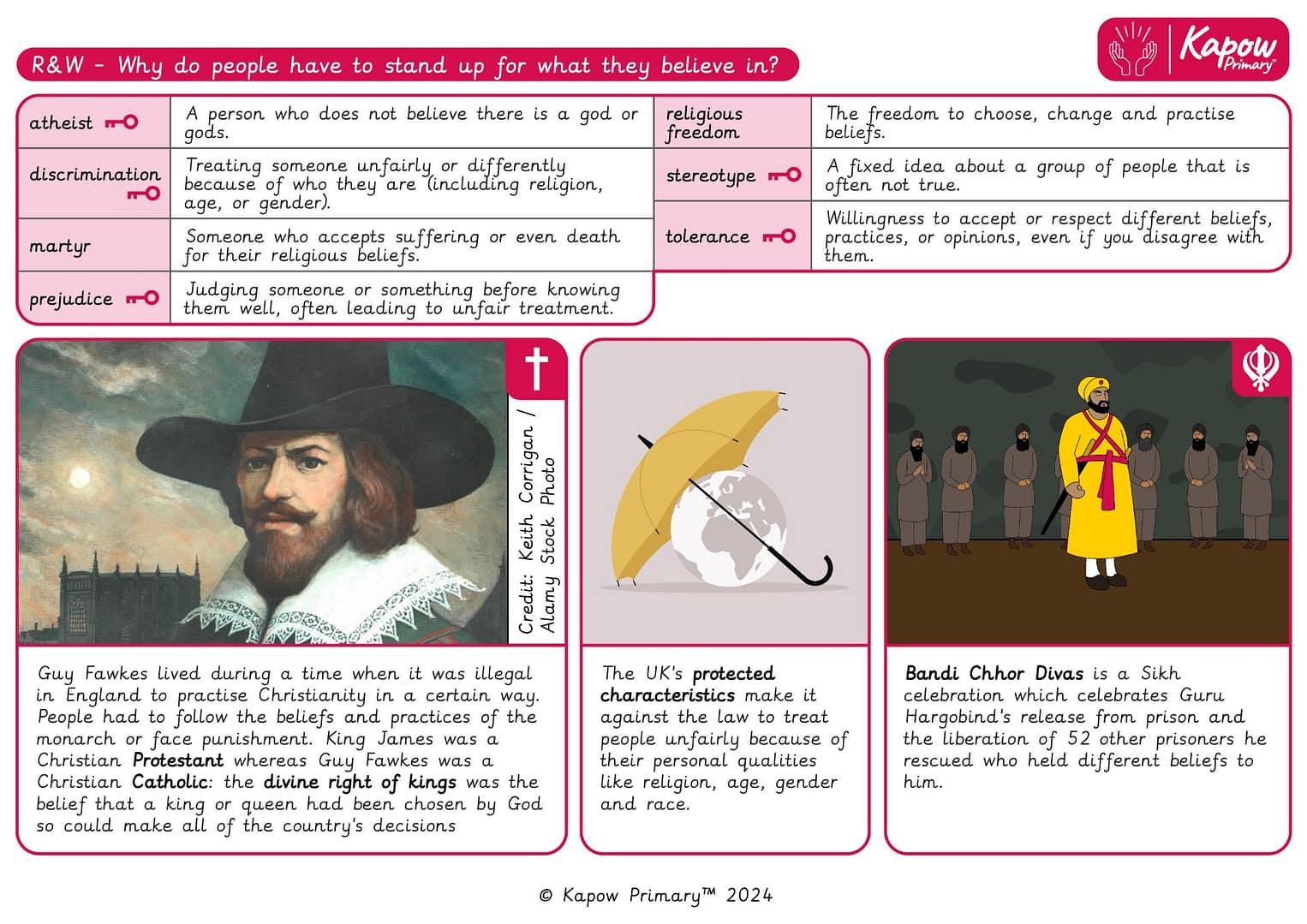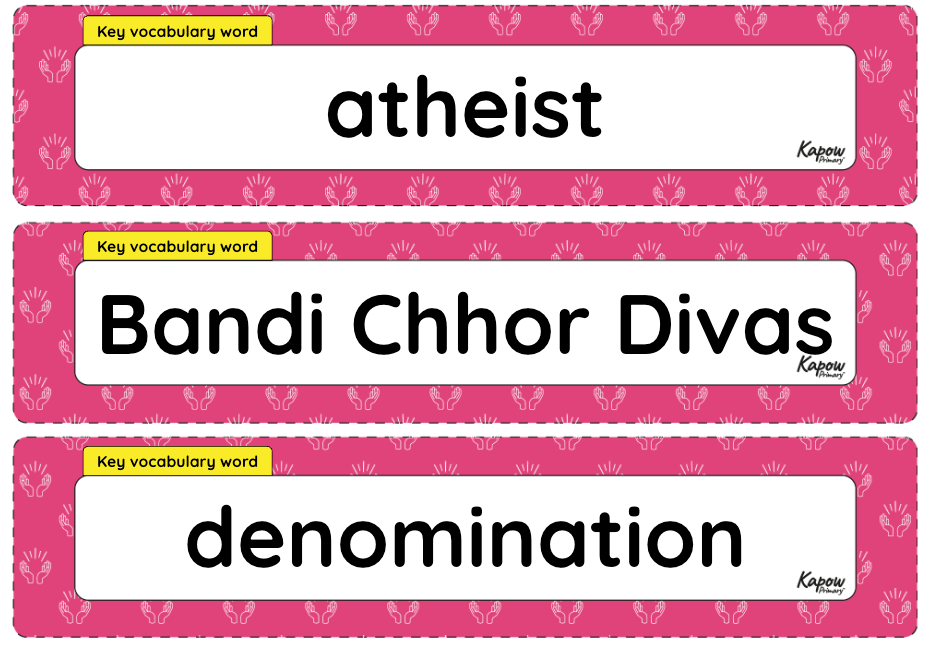Why do people have to stand up for what they believe in?
Investigating historical and modern-day examples of people who have fought for their beliefs.
New statutory RSHE guidance is here. We’re creating our brand new RSE & PSHE scheme ready for September 2026. Learn more
- Subjects >
- Religion and worldviews >
- Key stage 2 >
- Year 5 >
-
Why do people have to stand up for what they believe in?
Unit outcomes
Pupils who are secure will be able to:
- Identify challenges people face because of their religious beliefs.
- Suggest ways to create positive change.
- Express the different ways light symbolises celebration.
- Assess different points of view.
- Begin to use the terms bias, stereotype and prejudice.
- Explore various viewpoints surrounding religious prejudice.
- Consider why there are still issues regarding religious freedom today.
Suggested prior learning
Does the language of scripture matter?
Get startedPlease note
Lessons and resources within this unit have been updated, focusing on pitch, lesson length and key vocabulary. The context, skills and knowledge covered and learning progression of the unit remain the same. The unit now has an additional lesson and the Respectful Religion and worldviews lesson has been moved to sit outside the unit.
Lessons
Lesson 1: What does freedom look like?
- To recognise the importance of religious freedom by interpreting news reports.
Lesson 2: How have beliefs been challenged in the past?
- To consider the challenges some religious figures faced by looking at Jewish, Christian and Sikh stories.
Lesson 3: How can light represent standing up for what you believe in?
- To explain why Bandi Chhor Divas is celebrated by many Sikhs.
Lesson 4: Should we celebrate Bonfire Night?
- To consider how the meaning of festivals can differ by exploring the origin of Bonfire Night.
Lesson 5: What can inspire people to stand up for their beliefs?
- To explore why people stand up for their beliefs using a variety of modern-day scenarios.
Lesson 6: How can we stand up for what we believe in?
- To explain how and why people stand up for what they believe in.
Optional: Why do some people use different names for Jesus?
- To explore Christian beliefs about the Incarnation through the Nativity story.
Key skills
Key knowledge
Related content
Unit resources

Knowledge organiser – R&W Y5: Why do people have to stand up for what they believe in?
Aimed at pupils, a single page document that gives key facts and definitions from the 'Why do people have to…

Vocabulary display – R&W Y5: Why do people have to stand up for what they believe in?
A display version of the vocabulary from the 'Why do people have to stand up for what they believe in?'…
Cross-curricular opportunities
British Values: Tolerance of different cultures and religions, mutual respect.
English: Reading comprehension, writing, spelling, spoken language.
History: A study of an aspect or theme in British history that extends pupils’ chronological knowledge beyond 1066.

